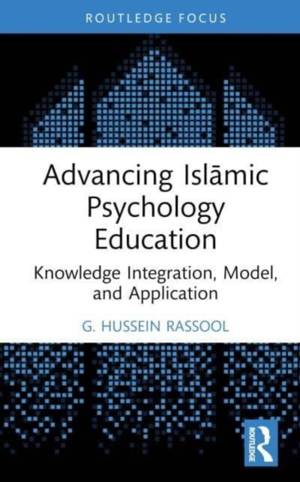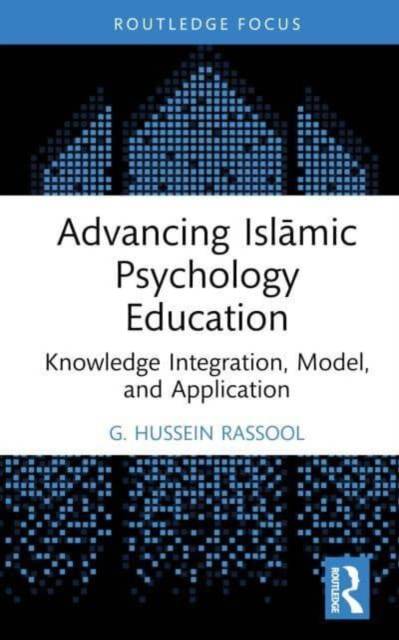
- Retrait gratuit dans votre magasin Club
- 7.000.000 titres dans notre catalogue
- Payer en toute sécurité
- Toujours un magasin près de chez vous
- Retrait gratuit dans votre magasin Club
- 7.000.0000 titres dans notre catalogue
- Payer en toute sécurité
- Toujours un magasin près de chez vous
Advancing Islāmic Psychology Education
Knowledge Integration, Model, and Application
G Hussein RassoolDescription
This book provides academic and clinical institutions for developing their educational programmes in psychology, psychotherapy, and counselling from an Islāmic paradigm.
Examining the educational approach in the decolonisation of psychology curricula, the book proposes a vertically and horizontally integrated, embedded curriculum model. This model meets the changing needs of practitioners, incorporating indigenous cultural aspects and emerging technologies to reflect new and creative ways of thinking about delivering education in the post Covid-19 era. The chapters also demonstrate how curriculum development, based on the principles of Islamic education, helps institutions to establish purpose, define activities, and guide decision making in educational development. A series of steps for implementing this need-driven educational programme has been suggested.
This practical, concise, and evidenced-based text will be a key resource for educators and trainers. It will help them understand how to re-design or suggest changes to curriculum structure, shape, and content in Islāmic psychology, psychotherapy, and counselling for undergraduate, postgraduate and continuing professional development levels of education.
Spécifications
Parties prenantes
- Auteur(s) :
- Editeur:
Contenu
- Nombre de pages :
- 160
- Langue:
- Anglais
- Collection :
Caractéristiques
- EAN:
- 9781032359731
- Date de parution :
- 20-07-23
- Format:
- Livre relié
- Format numérique:
- Genaaid
- Dimensions :
- 138 mm x 216 mm
- Poids :
- 639 g







